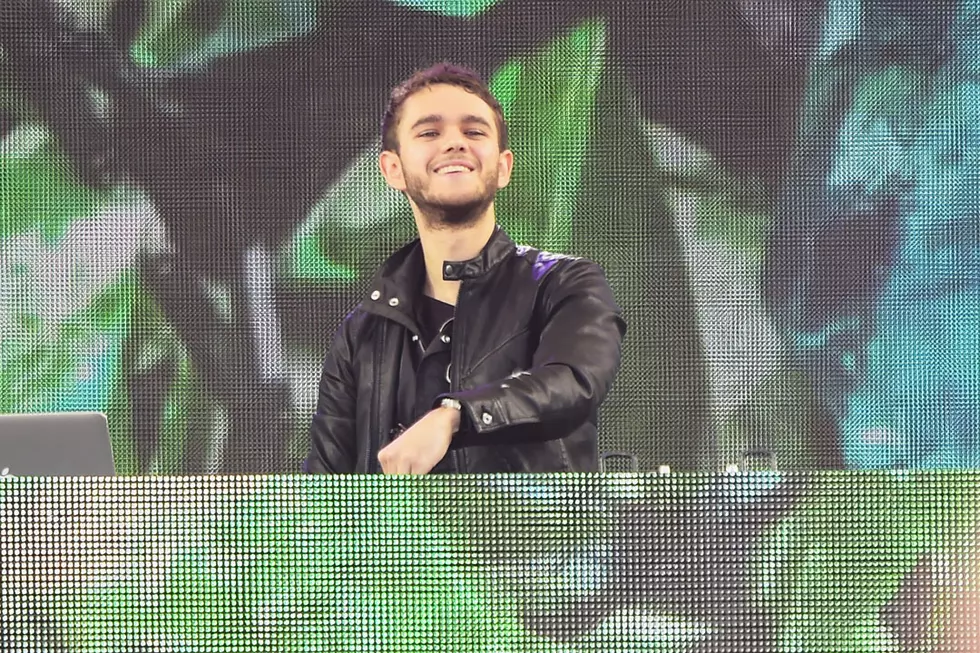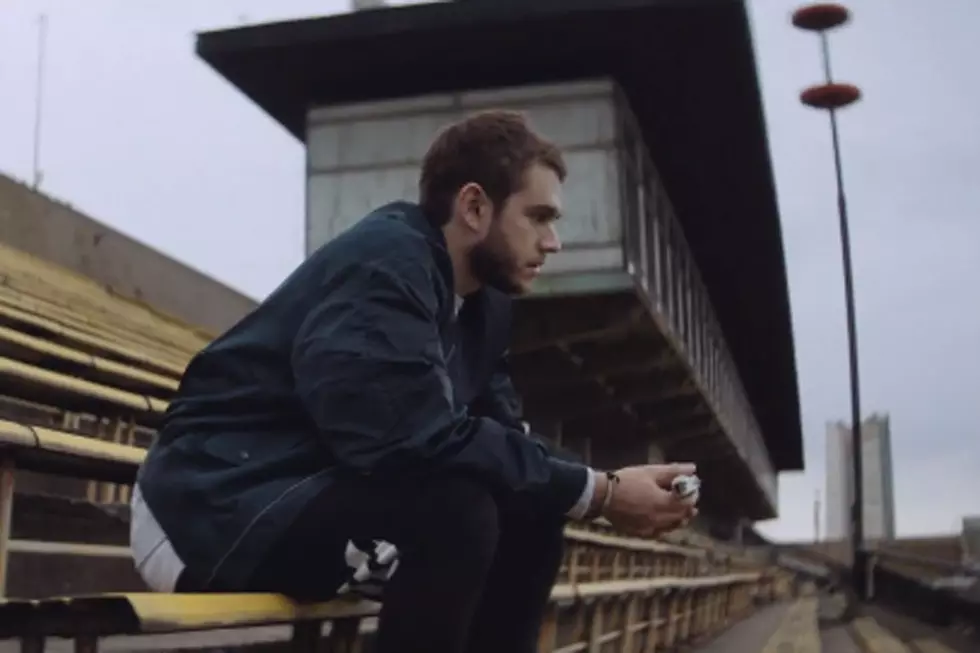
Exclusive Interview: Matthew Koma, EDM’s Most In-Demand Vocalist
You've heard Matthew Koma's voice everywhere in recent months: He's lent his considerable talents to Alesso's "Years," Zedd's "Spectrum" and the Fedde Le Grand/Nicky Romero collaboration "Sparks," among others. But more than just a gifted guest singer, Koma is a natural songwriter and artist with myriad influences; he released his debut pop-rock EP Parachute this summer, which packs the one-two punch of catchy guitar riffs and singable, relatable melodies and lyrics. As he readies his first record on Interscope Records, elektro asked him about his experiences in the EDM realm and about what's to come.
elektro: You’ve said that your musical heroes are Elvis Costello and Bruce Springsteen. With role models like that, how do you try to modernize the sounds? Does it feel strange to work on dance tracks?
Koma: Bruce is such a great storyteller, has such a knack for storytelling, and connecting with them, Costello really knows how to twist the lines and make you think about something... those are just kind of the building blocks for me, on how I write my songs, whether it's for me or for someone else. Even if it's an EDM song, I want to be able to pick up a guitar so the songs feel like they're not just reliant on a production model. You can't ask for a better melody than Bruce, and you can't ask for a better twist on a line than with Costello. I think both of those artists have achieved that throughout their careers, having their songs be part of movements and whatever the genres were when those records were first coming out.
elektro: Do you think of yourself that way, since you’ve worked in so many genres, and collaborated with everyone from Alesso to Carly Rae Jepsen?
Koma: It's always been connecting with people through something sincere and something honest, not really thinking if it fits in this or that box. I love pop music and I write pop songs, and I like to write stories, but I don't know if I've ever consciously stepped down and said, "I want to fit into this genre." I've enjoyed the process of walking across that line and making an EP that to me is more a contemporary singer-songwriter record. It's pop and it's accessible, but there are still stories there and there's still meat to bite into and then with the EDM stuff, I get to be myself in that context, and recently I got to produce a remix for Bruce Springsteen... that was a trip. It's always about serving whatever that purpose is, or that moment. It's kind of just being aware of who you're writing for, it differs for each thing.
elektro: And Interscope has definitely given you a lot of different opportunities.
Koma: Dave [Rene, head of A&R] was such a huge supporter from day one. [EDM] is such a different world with such a different audience. I'm still able to kind of do what I do in those contexts and bring it into those productions. Dave really opened my eyes to the opportunity of doing that kind of stuff, because I really hadn't previously thought about work with DJs, but I don't feel like I'm compromising, you know? Doing something that's so outside of my box or that's asking me to change... When you go to Coachella or any EDM festival, some of the most played songs are [by] Gotye or fun. You realize that the songs that really connect are the ones that cross genres and those are the songs for the people. When you look at that you realize, "Okay, it doesn't have to be this one specific thing. You can write a real song and it still connects with that audience." You can still write something that's maybe not as obvious as you'd initially assumed or relate to dance music and it still works, and it's cool to see people responding, responding to “Calling.” It's cool but it's really different. It's nothing I necessarily set out to do on purpose, I just organically happened and that's it. It's nice to be able to walk into different rooms, with different artists, getting to work on all this different stuff so early on. I'm just really, really fortunate to have that opportunity.
elektro: What was it like working with Zedd?
Koma: We met through Dave, probably a year ago, and pretty randomly we were talking on Gchat. He suggested we should get together, he had a bunch of new songs. So we sat down and he played me a bunch of tracks and I was like, “Dude, that's something special.” In like 20 minutes we banged out the melody to “Spectrum,” and emailed back in forth for the next few days about lyrics. So it started in the same room, but became more of an over-the-Internet thing, and before we knew it, it was done. I think the thing about Zedd is that, he's coming from a real place of inspiration. He knows what he's doing, and he knows what he's looking to accomplish with his music, he's just a really good self-aware guy. I think just being around that, being around somebody who can understand the rules of the genre he's in but also know how to stretch them the right way is really inspiring. He understands things about music and recording that you wish everyone did. It's not an accident, it's not a hack, it's somebody who plans every move as he's making it. He's really smart, really good and really inspired. He works on music because he loves it. He comes from a true place. It makes sense that his music is connecting with people, because it's real.
elektro: And what can you divulge about your own album?
Koma: All four of the EP songs are on the record; they felt like the appropriate four to give people an idea of the record. It's unapologetic pop in some ways. Pop has such a negative connotation because there’s become such a negative spin. [When] I think about pop, I think about great songwriters and great songs that appeal to more people than any other type of music. For this record it was about not worrying about fitting into this, or fitting into that, just doing stuff that was honest, knowing that those stories or those lyrics can relate to a mass of people.
elektro: So it sounds like a marriage of mainstream and experimental.
Koma: Again, I think it's one of those things where if you're making somebody feel something, that's universal. You can never put a numeric value on how many people are connecting. It evokes an emotion, and people connect to it. People connect to different things; you see people tweeting, "Check out this lyric" and people tweeting about this drop or that drop, there's no way of really knowing. Once you put something out there, it's for people to live with it and you have to let the song grow.
More From Elektro Daily









